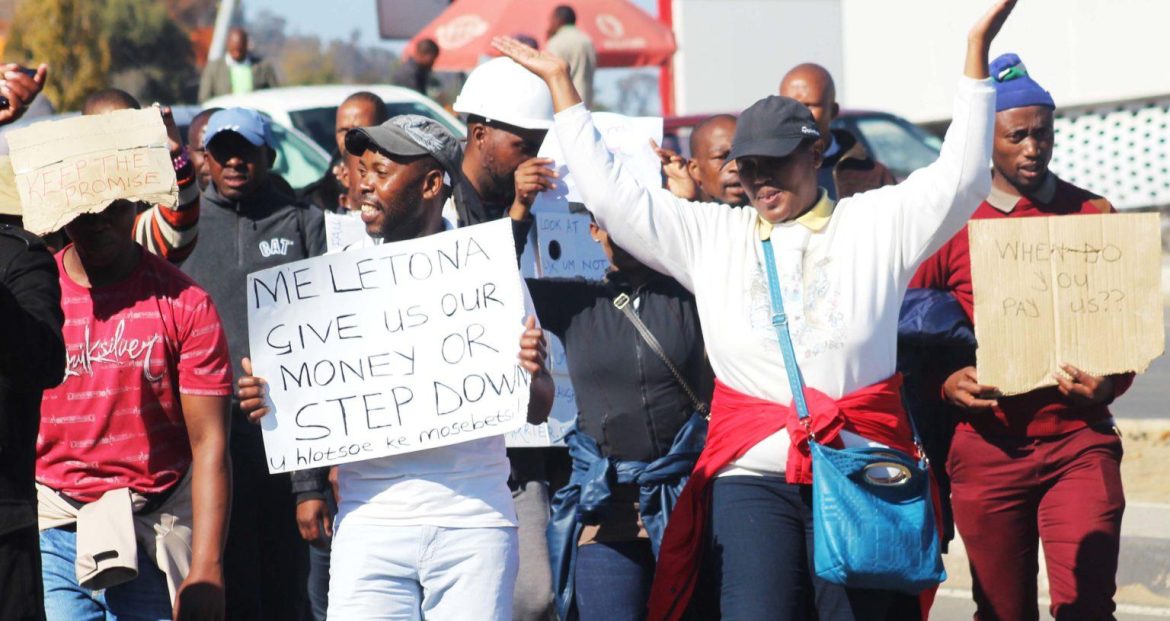Lesotho, a small landlocked country in Southern Africa with just over two million people, has officially declared a national state of disaster as youth unemployment and widespread job losses continue to cripple the nation’s economy. The Deputy Prime Minister, Nthomeng Majara, made the announcement recently, stating that the state of disaster will last until 30th June 2027. This development is coming as the country faces growing economic hardship worsened by uncertainty around trade relations with the United States.
The government said the action was taken in accordance with the Disaster Management Act, allowing it to mobilize urgent funds and resources to fight the crisis. The aim is to roll out emergency interventions to create jobs for young people, support local businesses, and cushion the economy. According to official statistics, unemployment in Lesotho is around 30%, but for young people, the figure is almost 50%. That means nearly one in every two youths in the country is jobless.
The economic situation has been made worse by recent trade policies introduced by former US President Donald Trump. In April, the Trump administration announced steep tariffs on Lesotho’s exports, making the country the worst-hit among all affected nations. A 50% tariff was placed on goods coming from Lesotho, although it has now been temporarily suspended. Prior to this, Lesotho was one of the top beneficiaries of the African Growth and Opportunity Act (Agoa), a US policy that allowed some African countries, including Lesotho, to export goods to America duty-free.
Lesotho’s main exports to the US have been textiles and clothing, and in 2024 alone, the two countries traded goods worth about $240 million. Most of this trade was in Lesotho’s favour. But with the introduction of the tariffs and the suspension of Agoa, many American companies have stopped placing new orders. Lesotho’s Trade Minister, Mokhethi Shelile, told Moneyweb, a South African business publication, that uncertainty about the future of Agoa is scaring away US buyers. He added that if the programme is not renewed by the end of September, the country risks losing up to 40,000 jobs, mostly in the textile sector.
To make matters worse, the US also pulled the plug on some major aid programmes, including the USAID and Pepfar (the US President’s Emergency Plan for AIDS Relief), which had provided critical funding for healthcare and social welfare in Lesotho. The country is now battling on multiple fronts — economic collapse, trade decline, and a struggling health system.
The current unemployment crisis comes just months after Lesotho emerged from another state of disaster, which was declared due to food insecurity. Prime Minister Sam Matekane had in March said that over 700,000 Basotho, nearly one-third of the population, were going hungry as drought conditions hit agricultural production. Many analysts believe the current economic challenges were building up long before the tariffs and aid cuts, and say the government failed to act on warning signs.
As part of immediate relief measures, the government has announced that business registration fees for small and medium-scale enterprises (SMEs) will be scrapped to encourage more people to start businesses. Ministries and agencies are also expected to channel available funds into job creation and economic recovery projects, especially in the textile and agricultural sectors.
Lesotho, which has for years relied heavily on trade with the US and foreign assistance, is now being forced to look inward and find homegrown solutions. Economists have advised that the country must now invest in infrastructure, vocational training, and local production to reduce its dependence on international trade and aid. With youth unemployment nearing 50%, the urgency to act has never been higher.
The state of disaster is meant to serve as a wake-up call to both the government and development partners that Lesotho cannot continue to operate business as usual. Whether this bold move will bring about real change remains to be seen. For now, Basotho youths are hoping that this declaration will not just be another policy announcement but a real beginning of a new chapter for job creation and economic reform in the country.
